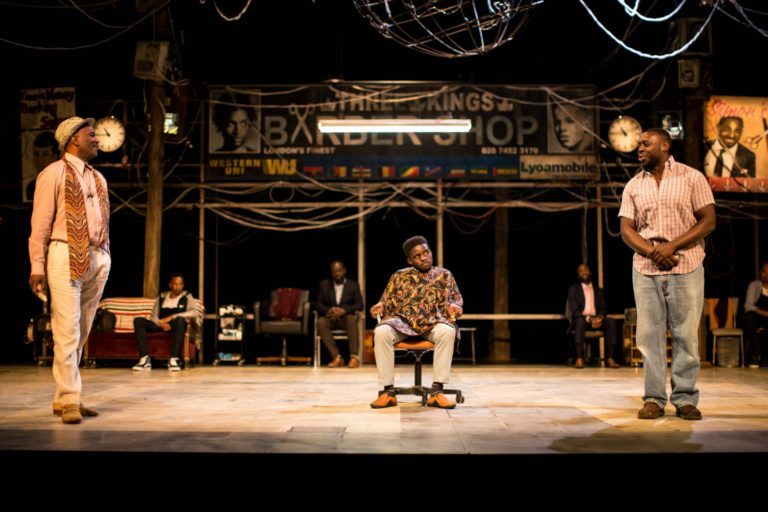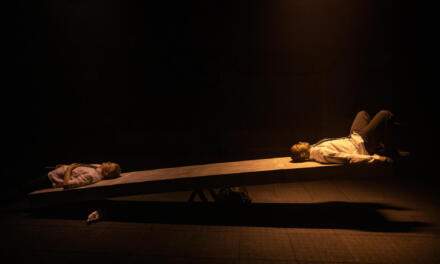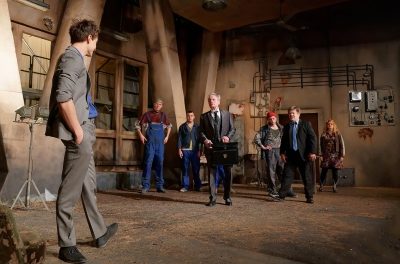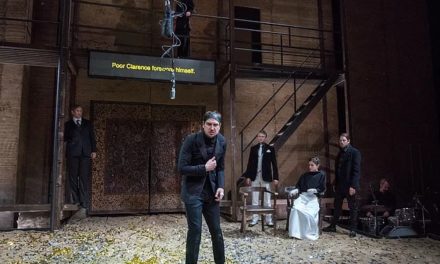Inua Ellams’ Barber Shop Chronicles, his first full-length play, was a smash-hit when it opened in London in 2017. It was co-commissioned by the National Theatre and Fuel, an organization which works with new artists to present unusual plays that will both appeal to today’s audiences and introduce live theatre to those who have not experienced it.
Ellams who was born in Nigeria and moved to Great Britain as a young boy returned to Africa to research Barber Shop Chronicles. He visited barber shops in Lagos, Nigeria; Kampala, Uganda; Accra, Ghana; Johannesburg, South Africa; and Harare, Zimbabwe recording conversations to help develop his play which deals with black masculinity in today’s world. A barber shop in London, where Ellams resides, appears after each African scene.
Conversations often revolve around fathers who deserted their families and/or were tough on their sons. Sex and women, particularly the relative attractiveness of black and white women, are frequently brought up. The changing nature of language and the disappearance of pidgin are discussed. Politics is a source of interest as in the argument two characters have about the accomplishments of Nelson Mandela. Colonization has left an indelible scar on Africa.
The men joke, argue, and for the most part, enjoy themselves in the barbershop that is their refuge. They eagerly watch the soccer games that are broadcast from Barcelona in the hope that Chelsea, a British team with a number of famous African players, will win.
Barber Shop Chronicles is enlivened by the music and movement. Before it actually begins, audience members are invited onstage to participate. Some are seated in barber chairs as if their hair is going to be cut. Others dance with the performers. Still, others sit in chairs on either side of the stage. Some remain, while the rest return to their seats in the auditorium to watch the show.
The all-male cast is comprised of talented singers and dancers who perform current pop and time-honored African music. Michael Henry, the music director adapted the singing style to suit each country’s music.
The simple stage setting relies mainly on barber chairs with wheels as well as tables that hold equipment. Scene changes are made by the actors while singing and dancing. Upstage there are seats for customers who are waiting. At times a mattress is placed on the floor. There are two entrances above which numerous wires are attached to a globe shaped light. The wiring signifies the ad hoc delivery of electricity in African cities. Two clocks hang above the stage as do several barbershop advertisements.
Ellams has created a number of potential narratives but none is fully developed. The same holds true for the characters. There are thirty roles and twelve actors. Thus, the characters’ growth is limited. It can be difficult to understand a few of the actors who use accents and sometimes unfamiliar vocabulary.
Barber Shop Chronicles runs one hour and fifty minutes with no intermission which makes for a long performance.
Barber Shop Chronicles, presented by the American Repertory Theatre, plays at the Loeb Drama Center in Cambridge, MA through January 5, 2019. The production then goes to Dartmouth University in New Hampshire before returning to the U.K.
This article appeared in Capital Critics’ Circle on December 12, 2018, and has been reposted with permission.
This post was written by the author in their personal capacity.The opinions expressed in this article are the author’s own and do not reflect the view of The Theatre Times, their staff or collaborators.
This post was written by Jane Baldwin.
The views expressed here belong to the author and do not necessarily reflect our views and opinions.


















